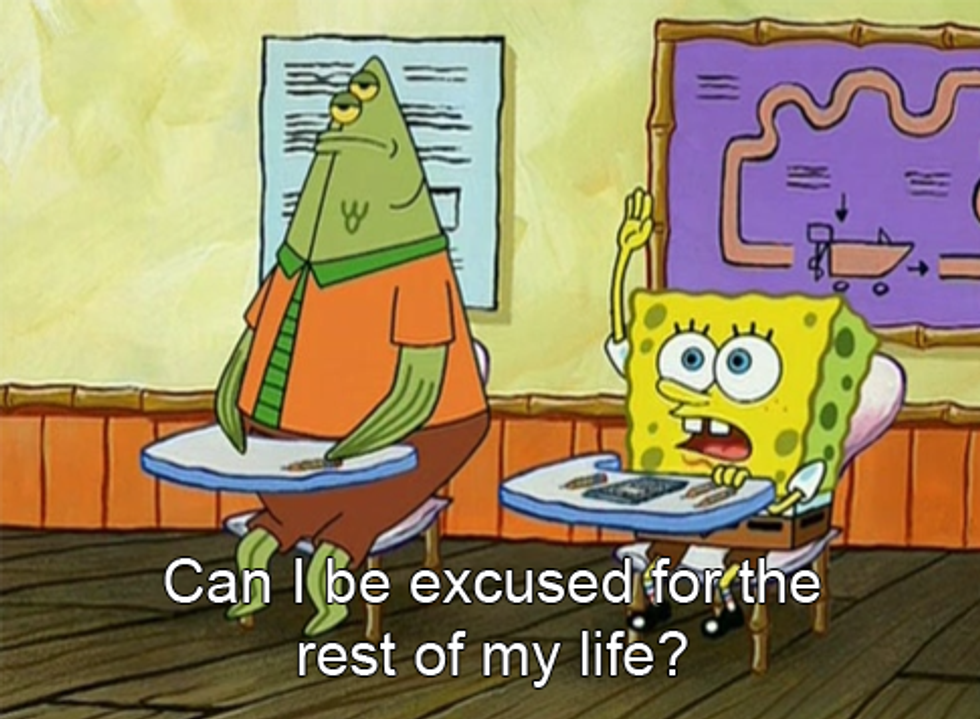This is a work of semi-autobiography and therefore should be considered fiction. Names and events have been altered. "Seven Years Bad Luck" is an ongoing series. This is part nine.
I pass through the French doors onto the white wood porch, and clop down the stair. The backyard is short, ending quickly in trees, with a gravel road heading off into the woods. I head off down the path.
The wind is rushing, the short yellow jacket I’m wearing proving to be a good thought. The day continues to be brilliant with sunshine, passing in and out through the trunks. Early November means Mobile has lost its humid, oppressive heat, the air outside better than anything that could be simulated indoors. Walking through that lighted wood, I invariably lose myself in thought. In and out, like the sunlight in the forest, thoughts dart in to be mused on and discarded. I remember none of them.
Meandering through the woods, it doesn’t feel important to uphold thought or memory. It feels more important just to feel it.
I continue over the gravel until I spot a house. Passing the house, I climb onto asphalt, and find myself in a neighborhood. Should I go back? I didn’t bring my phone.
Staring down the sun-bathed street, I decide to continue. I believe there’s a point where any man-made glitter, burnished and polished, can’t compare to a perfect hour in nature. Even in the suburb, the trees stand close. If there is another path, I want to see it.
It turned into one of the best decisions I ever made.
At the dead-end of the road stands a house. But next to the house – there is a small, broken fence, the barbed wire dipping low. And beyond that –
There are times when I see something and I’m not aware of the word for it. And when that happens, somehow the experience is improved than if I had put it to words.
Beyond the fence the ground rolls low, a broad and grassy basin rippling away to a slope where the trees stand on the other side. In the basin, knots and whorls of grass gleam golden in the afternoon sun. There’s a lumpy peak, like an island, with a stringy sapling perched on top.
There’s something to be said, I think, for the idealization of the pastoral in literature. The modern pastoral: the dry retention pond. When it’s called that, it loses all its power. But if it could been seen again, just the way I see it now, it would regain that power and more. Words, I firmly believe, are a way to understand the world, but they can’t be the world. They can’t capture it, no more than we have the capacity to completely understand it.
While I stare over the long-grass of a sometimes-pond, I’m aware that something is changing inside of me. There are a collection of images in my head that I can feel are making a place for this empty retention pond.
It joins great company. There’s an image of Hong Kong in there: of climbing a mountain in the hot, humid dark, and seeing the skyscrapers and narrow streets of Hong Kong Island from between the branches of a quiet trail. There’s also an image of driving through rural Alabama. A perfect day of sunshine and quick moving clouds shuffling patches of shadow over the road. The fields and houses passing peacefully by, as it seems like I’m the only one on the highway on a vivid afternoon.
That in particular - the drive through the country on a wondrous day - I always thought that if heaven happened, and then also had a kind of pan-out effect – like the kind they have in movies – that would be the first shot: windows down, hair flying everywhere, CD playing (though I don’t know what), rolling back to one long drive down a gently rolling road.
I think a lot about heaven and happiness as I walk back to the mansion.
I don’t really reach any conclusions. When I step back into the house, I have to contemplate, with a little bemusement, that this is heaven for some.






















